The very first Lexical Lab online conference
Saturday June the 5th
As you may know, we now offer an annual scholarship to the IATEFL conference for first-time speakers. This means we get numerous applications from teachers around the world and have the almost impossible job of selecting just one winner. We’ve been so struck by the quality of some of the proposals that we decided to organise a one-day online event to showcase some of the talks that came close to winning – and to give everyone out there a chance to learn more about the different ways teachers around the world are teaching lexically.
To give a little bit back to the ELT community that’s given us so much over the years, we also decided to make the whole event absolutely free. Register below, and we’ll send details of the Zoom link nearer the time.
To whet your appetite, here’s more on the some of the talks you’ll be able to catch on the day.
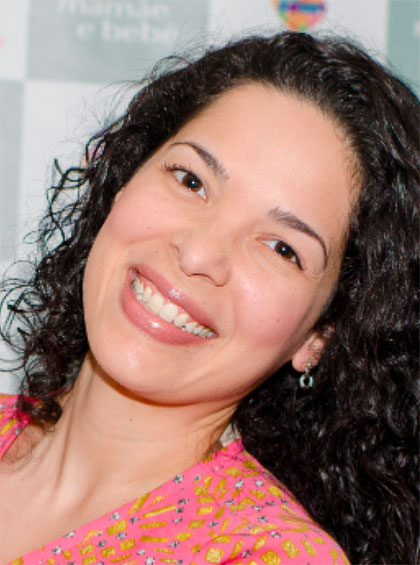
Carolina Cunha
Carolina Cunha has been an English teacher for 20 years. She holds a BA in English and an MA in Sociolinguistics from UFMG, as well as the Cambridge Certificates: CAE, CPE, TKT and CELTA. She currently works as a freelance teacher and teacher trainer in her own language studio where she offers personalized courses and workshops.
Lexical Approach and Meaningful Communication: A self-reflexive observation
The aim of this talk is to demonstrate how the lexical approach can be used effectively with elementary students in order to teach new grammar/vocabulary items and thus foster meaningful communication. The observation of the recordings of my A2-B1 classes yielded the reflections of this presentation. I will briefly discuss some of the most common language learning and teaching beliefs that might hamper the implementation of more lexically based lessons in elementary classes. Then, I will illustrate how teaching lexically can foster students’ communicative skills by setting a co-text to introduce language using data from my regular classes.
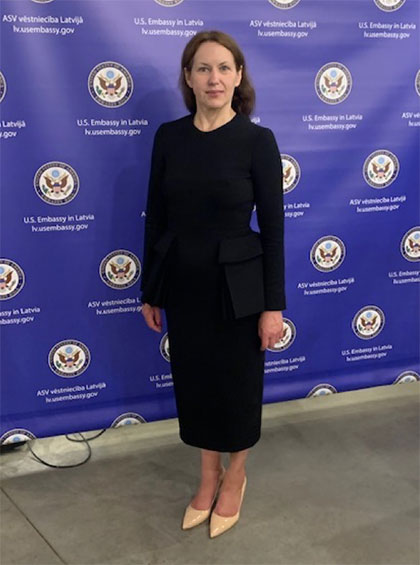
Astrida Skrinda
Dr Astrida Skrinda is a Fulbright Visiting Scholar. Her academic record includes a Postgraduate Diploma in TESOL from Canterbury Christ Church University in the UK. Her doctoral dissertation was in English Education, and the field of practice is in this area. She has taught English as a foreign language at tertiary level for many years. After obtaining a doctoral degree, she took up research positions. She has had leading editorial roles at a number of academic journals. Her main areas of interest are second language vocabulary teaching and learning, individual learners’ differences, and, more recently, sustainable education.
Lexical Attainment, Individual Learners’ Differences, and Teaching Implications
How vocabulary teaching and learning are approached inside and outside the L2 classroom is determined, to a large extent, by individual learners’ differences (ILDs). This talk will shed light on some ILDs, both context-dependent and intrinsic to L2 learners: Group A represent highly idiosyncratic features of each individual’s approach to L2, and Group B represent ILDs which are regarded as variables characteristic of all L2 learners. As a consequence, in the L2 classroom, it is important to identify learners’ types, to customise vocabulary training techniques to individual learners’ profiles, and to identify predictors of high-aptitude L2 learners.
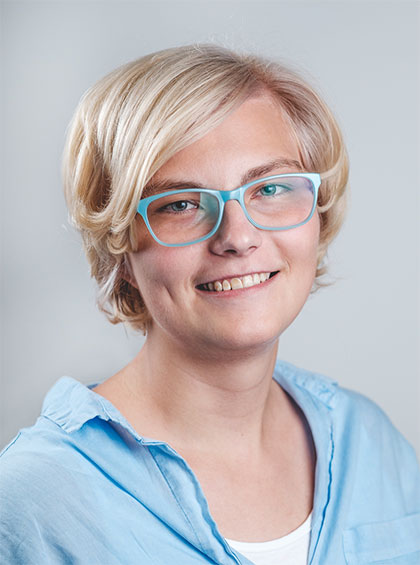
Dana Jaskova
After working as a course manager in a big language school in the Czech Republic, Dana decided to continue working in the language industry as a full-time teacher. Since she loves words and communication in general, it seemed only natural that she found herself drawn towards lexical teaching. Last year she even started her own project English in Context (Anglicky v kontextu) with the aim of inspiring more students and teachers in the Czech Republic to start learning and teaching English in (a lexical) context. Last but not least, she occasionally does English mentoring focused on job seeking.
Replacing vocabulary lists with lexical context: my experience from the Czech Republic
In Central Europe, there still seems to be a tendency to teach students lists of vocabulary. As a result, learners can name types of public transport, however, they often lack the verbs that collocate with these words in their vocabulary. This then prevents them from being able to make simple sentences necessary for everyday communication. In my talk, I would like to cover what it is like to break free from the mainstream approach of teaching words in isolation, to demonstrate how I inspire students to learn lexically instead, and to provide you with some useful tips on how to do so yourself.
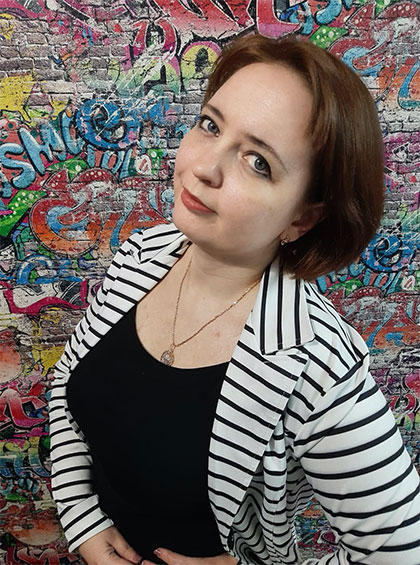
Marina Dolgacheva
Marina Dolgacheva has 18 years’ experience of teaching both offline and online. She is a practising school teacher, a methodologist and a teacher trainer, who runs a series of workshops for the Teacher Training Centre of the online school Skyeng. Recently, she has become a new member of the project team “Teachers Teach Teachers”. Marina is a winner of the regional contests ‘Teacher of the Year’ and ‘Teacher of the future’, and a runner-up for the national contest ‘Pedagogical hackathon’.
Say ‘YES’ to teaching grammar lexically in the exam class
There has been a certain buzz about teaching lexically recently. More and more teachers acknowledge the value and the opportunities of the lexical approach when it comes to teaching General English course. However, teaching grammar lexically in an EXAM class is still believed to be a somewhat ambiguous idea.
In this session, we will talk about only those lexical activities which have proven to be helpful to students while preparing for the exams (EGE. FCE, CAE). We’ll also take a step further and see how these activities can be modified to be used in both offline and online teaching.
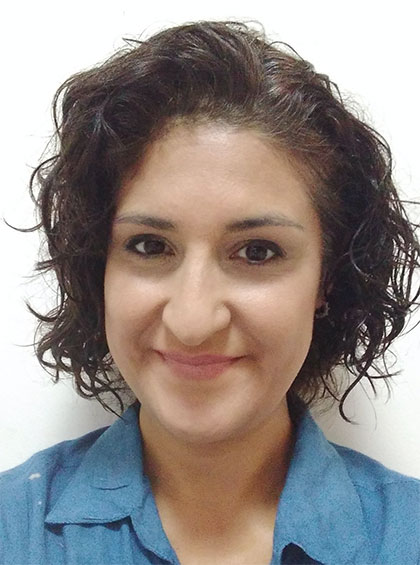
Mariela Mondaca
Mariela Mondaca graduated as a teacher of English as a Foreign language from Instututo Superior Juan XXII in 2001. She holds a second BA in Education from Universidad Nacional de Quilmes. At present, she is undertaking an MA in Education at the same institution. For twenty years, she has taught all levels, from kindergarten to higher education, mostly at state institutions in Argentina. She was part of the British Council’s Language Assistants programme during 2009-2010 in Suffolk, United Kingdom. For the past ten years, she has been a teacher trainer and higher education lecturer. Her main areas of interest are fostering speaking in EFL students, and the impact of the lexical approach in communicative abilities.
Elementary ESP: Lexical Approach to the Rescue
The aim of this presentation is to show how ESP students at beginner levels can benefit from the implementation of a lexical approach. We will present the case of ISS, a police tertiary institution in Argentinean Patagonia, where the syllabus is aimed at enhancing communication at false beginner’s level. With a dreadfully limited schedule and after a careful needs analysis, the lexical approach emerged as the most suitable alternative. We will discuss the kind of activities employed in the classroom and have a look at some of the students’ productions, so that any professional new to teaching adults may benefit from this practical insight.

Joana Szoke
Jo has been teaching Business, General and Academic English for more than 10 years in Hungary, Poland, and in the UK. Having finished her DELTA, she became actively involved in teacher training, and is an assistant lecturer of methodology and education technology at a Hungarian university, as well as a content creator for several English-teaching websites and video channels. In her free time, Jo just loves going downhill and jumping around in foreign forests on her mountain bike.
Teaching chunks for better business communication
Business English students are pressed for time and are expected to meet high standards in everyday international business communication. What could work better for them than the application of lexical chunks? In this workshop, we’ll explore why the lexical approach, i.e., the teaching of chunks can enhance the learning experience for these students.
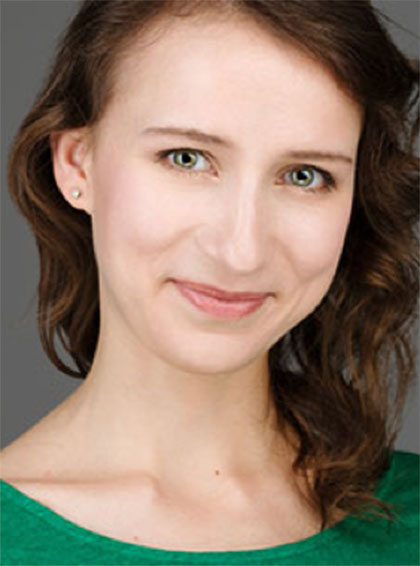
Yulia Esenish
Yulia works as a full-time English teacher and a methodologist for Accent Language Center – one of the oldest and largest corporate education providers based in Moscow. She spent the last decade teaching employees of companies such as Colgate, Volvo, Hills, Mars, Inditex, LeGrand, Sberbank, Knauf, and many others. As a methodologist, she trains other English teachers and helps them find appropriate material, resolve potential problems in classes, and prepare courses.
She is a teaching enthusiast who is always curious to try and implement different strategies, techniques, and approaches in her classes. Lately, she has been working on the implementation of the lexical approach. Her main focus is to optimize the way English is taught in order to best prepare her students for real-life challenges of communication and language retention.
Transitioning to the lexical approach with existing groups
Humans are generally reluctant towards change, even if leaving their comfort zone is for the better. Taking this into consideration, it’s impossible to switch from one teaching style to another overnight. It takes time, effort, and work from both sides – the teacher’s and the student’s. I will talk about how I started implementing the lexical approach with the groups I had been teaching using other approaches for quite some time. I will share some revelations and tips on how to smoothly guide your students towards speaking and understanding contemporary English. I will also highlight some problems I encountered and share the solutions I’ve found during my journey.
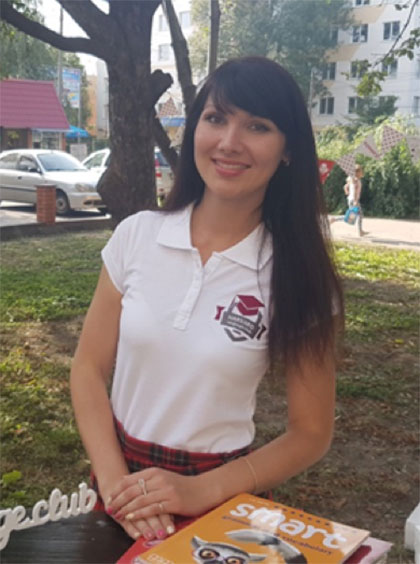
Anna Plaksiienko
Anna is currently working as a director of studies at a private language school based in Ukraine. She holds TKT Cambridge certificates and has 10 years of experience, working with students of different ages. She loves all of them, though her main area of interest is teaching adults. Now she is into teacher training and is happy to share her ideas and experience with other teachers since she believes cooperation is the key to development and growth. Anna is also a developer of both webinars and marathons.
Teaching Lexically. How Do I Do It?
This workshop aims to provide teachers with the understanding of how useful a lexical approach can be for every classroom, vivid examples of how to effectively implement it working with different age groups and in various contexts, and lots of ready-to-use activities and templates. Attendees will also receive a list of online platforms and smartphone apps that never fail. During the workshop, the presenter will demonstrate techniques and strategies that have proven to be effective in ESL teaching. Participants will become familiar with how to incorporate the development of the 21st century skills and new challenges into successful teaching. Upon workshop completion, participants will have a toolkit of strategies to be immediately implemented.
